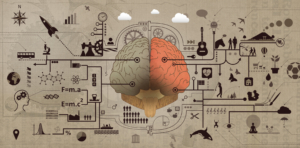Misdiagnosis
BPD is a complex disorder that has symptoms similar to many other mental health disorders. Many mental health professionals do not have a lot exposure or education on BPD, so it’s easy for BPD to be misdiagnosed as something else such as bipolar disorder since both disorders involve shifting moods and periods of depression. However, treatment for BPD involves specific kinds of therapy rather than a specific medication as it is for bipolar disorder. The first step towards feeling healthy is to be correctly diagnosed to make sure you get the correct kind of assistance.
Why is BPD often misdiagnosed?
- Symptoms don’t appear early upon meeting. In superficial relationships, people with BPD can appear without emotional dysfunctions, such as with friends and initially with mental health professionals. This is not because the individuals are hiding the BPD symptoms, but the symptoms manifest when relationships are deeper and there is greater dependency and commitment to the other person.
- Comorbidities of other mental disorders. Having BPD traits is highly likely to co-occur with other mental illnesses, such as mood disorders, eating disorders and substance use disorder. Therefore, clinicians may fail to catch BPD symptoms that are overshadowed by symptoms of other disorders.
- DSM-IV is confusing. In the previous version of the Diagnostic and Statistical Manual of Disorders (DSM-IV) the criteria for BPD was very vague and left many clinicians either reluctant with making the diagnosis.
Common misdiagnosis with BPD: Bipolar disorders
A common misdiagnosis and coexisting disorder with BPD are bipolar disorders. Both conditions have crossover traits that can be difficult to distinguish from one another. However, both disorders are conceptualised differently: BPD as a personality disorder and bipolar disorders as a brain disease.
REBBIE – Being misdiagnosed with Bipolar Disorder
Bipolar disorders are characterised by severe mood swings ranging from overly confident and energetic (mania) to immobilising sadness (depression). One form of the illness, bipolar, shares the same trajectory from emotional high to low, but the manic (high) phase is less intense and is therefore referred to as hypomanic.
Specific periods of emotional dysregulation in people with BPD can resemble hypomania (mood episodes), leading to misdiagnosis. During mania, an individual can appear sad, irritable or anxious. Although both disorders show emotional dysregulations, the dysregulations have different origins and patterns of manifestations. The depressive symptoms in BPD are more chronic rather than episodic, associated with a fluctuating mood that is highly impacted by interpersonal life events. Whereas bipolar disorders causes lengthy bouts of depression that may not be linked to any external factors at all.
People with BPD demonstrate a greater severity of emotion regulation deficits across a broad range of strategies including non-acceptance of emotional responses, difficulty accessing emotion regulation strategies, lack of clarity and awareness of emotions, problems with controlling impulses, catastrophising and use of self-blame. They are also more likely to respond to these emotional stressors by impulsively engaging in risky activities.
“The true bipolar has mood swings that are to some extent affected by situational events, but are largely a matter of problems with internal regulation of mood that probably has a biochemical basis, and often occur uncontrolled, without any situational trigger,” says San Diego psychiatrist Dr. David Reiss. “On the other hand, the borderline mood swings are very directly related to situational events and particularly events that are occurring within relationships.” – Borderline Personality Disorder Treatment
Symptoms by themselves are not sufficient to distinguish between the two diagnoses. Therefore, in psychiatry three other classic diagnostic validators need to be considered: course of illness, genetics and biological markers as shown in the table below.
| Borderline Personality | Bipolar Illness | |
| Symptoms | Recurrent suicidal and self-harm behaviours, depersonalisation, unstable interpersonal relationships, sensitivity to criticism and dissociation | Manic symptoms or episodes |
| Genetics | Strong environmental heritability | Very strong genetic heritability |
| Course | High prevalence of sexual abuse | Low prevalence of sexual abuse |
| Treatment | Psychotherapies necessary, medications can be included | Medications necessary, psychotherapies can be included |
| Neurobiology | Non-specific | Enlargement of amygdala, degeneration of hippocampus |
Table 1 BPD vs bipolar disorders from Bipolar or borderline: a clinical overview.
Consequences of misdiagnosis
Bipolar disorders requires specific medications that is known to be highly effective for patients with bipolar disorders. Whereas, the most evidence-based form of treatment for BPD consists of psychotherapies specifically designed for this condition. A misdiagnosis may deprive patients with BPD the option for a referral to specialised therapy and more likely to receive medications, leading to adverse side effects without indication of remission. Patients need to be followed over time to be sure of the diagnosis.
VALERIE PORR – The prevalence and negative impact of misdiagnosis
Preventing misdiagnosis
Remember doctors and therapists are not mind readers. The best way to ensure an accurate diagnosis by a mental health professional is to be as open and honest with them as possible about your symptoms. This way the mental health professional can understand the full picture in order to help you receive the correct treatment.
There are various types of evidence-based treatments available for people presenting with different BPD traits, however, effective individualised BPD treatment can only be undertaken when your symptoms and inner thought processes are revealed. Before your diagnostic assessment, it will be in your best interest to prepare a list of your concerns and goals.
For more information
BPD Treatment – How to prevent a misdiagnosis of BPD
Medical Daily – Bipolar vs BPD: The differences between the two and how to avoid misdiagnosis
Psych Education – Bipolar disorder and BPD
BPD – Key differences between Bipolar II and BPD
National Alliance on Mental Illness – BPD and bipolar disorder: What’s the difference?
Current Psychiatry – Borderline, bipolar or both? Frame your diagnosis on the patient history
Sources
BPD Treatment – 3 Reasons why BPD is often misdiagnosed
BPD and bipolar disorder: What is the difference and why does it matter?
Borderline Personality Disorder: How to avoid a misdiagnosis MedCircle
BorderlinerNotes on misdiagnosis
REGINA – Missed Diagnosis
REBBIE – Finding her way to the right diagnosis
ANTONIA NEW – Stigma & delayed diagnosis
Click to view more Borderliner Notes interview footage on BPD misdiagnosis.



